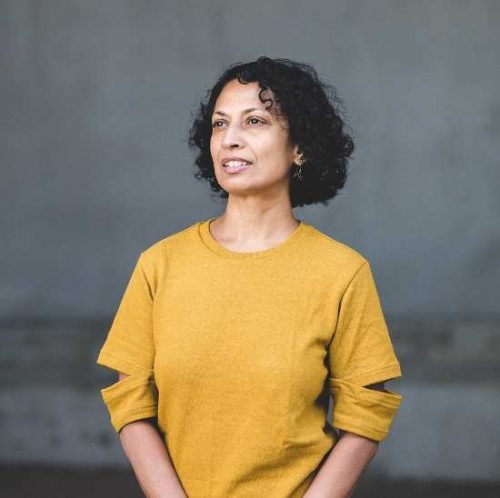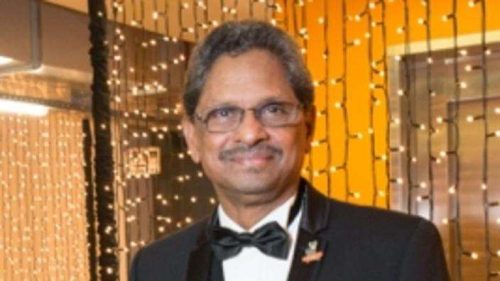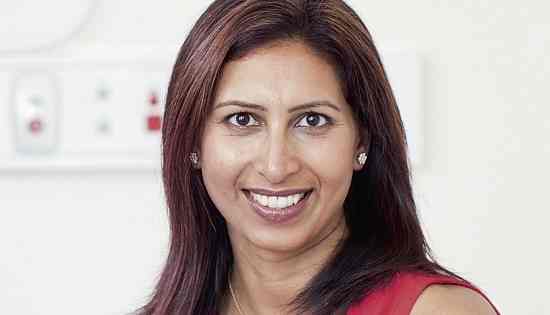Melbourne, January 29: Over 950 Australians were named in the Australia Day Honours this year, including the likes of former Prime Minister Julia Gillard and Victoria’s Governor Linda Dessau, organic scientist Andrew Holmes and former Liberal MP David Kemp, receiving the nation’s top Australia Day medal, the Companion of the Order of Australia.
Four Indian-origin professionals were amongst this elite rank, honoured with OAM on Australia Day for their contributions in the field of medicine and work towards the community. Two Victorian women of south-Asian origin feature amongst the awardees.
Melbourne-based doctor Ranjana Srivastava received the OAM award announced on the Australia Day, for service to medicine, particularly in the field of doctor-patient communication. “I’m very humbled, and a little thrilled,” Dr Srivastava said after she received the Order of Australia medal.
Talking to Bharat Times, she said that she realised the potential of an effective communication for patient healing process when very young.
“I was young when my grandmother succumbed to cancer – I remember my family going through any number of questions and needing explanations, she said”.
She is not inhibited to communicate this importance even through one of her “own earliest experiences of being a patient is when I suddenly lost a twin pregnancy.
“The medical facts were obvious but it was the compassion and empathy of the doctors and nurses that saw me through.
“These experiences cemented the importance of good communication in my mind,” she said.
As a Medical Oncologist and General Physician of Monash Health since 2005, Dr Srivastava insists that “good doctor-patient communication is essential to healing. We know that it aids understanding of one’s condition and hence compliance with treatment.
“A patient who feels understood and can be open with her doctor has a greater chance of bringing up problems, asking questions to help herself and recognising the goals of care in any situation”, she said.
Dr Srivastava, who teaches at Monash University, is also a columnist and Radio and TV presenter. She uses her platforms to nudge both her students and audience with potent and powerful messages as ‘Dying for a Chat: The Communication Breakdown Between Doctors and Patients’.
As recipient of Westpac’s Women of Influence Award, 2015, her power to influence has not gone unnoticed.
Although born in Canberra, Dr Srivastava considers herself an Indian-Australian; and will unflinchingly use her influence to bring to light, the case for migrant doctors and their difficulties.
“Migration to a new country is difficult enough and then, having to learn a new culture, a new form of medical language and become familiar with local customs adds to the burden”.
Although migrant doctors are given some training to acclimatise with local ethics, parameters, patient treatment and communication, Dr Srivastava is of the view that it can take “years to really learn these things”.
“Therefore, one of the best ways in which we can help migrant doctors is to embrace them and let them learn by example”, she said.
She disagrees with media reports that there may be an oversupply of local medical graduates entering internship, while there is an influx of migrant doctors.
“I see two problems.
“It takes a very long time to go from internship to a fully qualified and confident doctor, both in general practice and in specialties. So there are communities who struggle to find able doctors for their immediate needs.
“Secondly, it is still difficult to attract doctors to rural communities. Amongst the metropolitan students and doctors that I routinely encounter, it is the rare person who wishes to return to rural and regional communities.
“They may aspire to do so but they are often concerned about their partner’s employment prospects or the lack of good schools or other amenities”, Dr Sivastava emphasised.
She believes that migrant doctors in rural areas fulfil a great need for communities by working where many other doctors will not.
Migrant doctors, according to Dr Srivastava, are “often driven by the need to find a footing in a new country and know that their options are limited,” in contrast to local graduates, who have the flexibility to be “driven by the academic and social provisions of larger metropolitan settings”.
Her empathetic drive is not limited to effective doctor-patient communication but also embraces sometimes overwhelming circumstances of skilled migrant doctors.
It is “disheartening to see many migrant doctors, usually from the subcontinent, toil for years and unable to qualify in the local exams”.
She emphasised the need for a system where migrant doctors are welcomed and “adequately resourced and supported to help them help the Australian community”.
Dr Srivastava feels that local doctors, who are well-established, “can play a vital role in mentoring and providing emotional assistance,” to migrant doctors.
And through the maze of government policies and medicine, the campaigner Dr Srivastava is yet unable to obscure the mother, the woman Dr Srivastava.
“Being a mother is my greatest achievement by far.
“When you become a parent your whole world changes in a way that you’d never imagined.
“No amount of reading or advice can give you an insight into one of life’s most challenging yet priceless experiences.
“It has allowed me to see more deeply into the lives of patients who are parents and grandparents and has given me a valuable perspective about what really matters. Time and time again, when someone is at the end of life, what they cherish is not the degrees or awards they collected but the people they have held dear.
“I try to be constantly aware of this.”
Her ability to be compassionate effectively concurs with her professional integrity – an evasive quality in today’s commercial sprint to success.
Alongside her, stands Ms Padmini Maryse Sebastian, Manager at the Immigration Museum for Museum Victoria, who was awarded an OAM for service to Multiculturalism to the Victorian community.

Ms Padmini’s experience spans leadership across the cultural and community sectors in Australia.
She is currently a member of the Museum Victoria Leadership Team and is responsible for the multi award winning Immigration Museum in Melbourne, Australia.
A Sri Lankan refugee of ’84s, her family settled in Maribyrnong and then moving to West Preston.
These first impressions of suburban and multicultural Melbourne, instantly clicked for Ms Padmini. Later, in a Carlton share-house, her journey of discovering Melbourne cemented her belief in multiculturalism and this led Ms Padmini on to diverse engagements as varied as Board Advisory and Reference Committee Member, Islamic Museum of Australia; and Member, Alfred Deakin Institute for Citizenship and Globalisation Advisory Board, Deakin University, since 2015.
She is also the founding Board Member, International Network of Migration Institutions, UNESCO.
Ms Padmini is today, an influential executive with international perspective and political acuity with a demonstrated track record in managing organisational innovation and change.
“I live in the CBD. I find the places and the people really interesting and that’s what makes me tick.
“The areas where the rag trade was prominent I find really important because Melbourne fashion is a strong interest for me”.
She is a strong follower of ethnic fashion and find it “inspiring” because that “offers refugees an opportunity to find pathways for education and jobs”.
Melbourne’s CBD is her home – the tranquil edges of the city and its beautiful gardens is what she loves. The city’s varied cuisines and their rituals of eating, engaging the senses captures her imagination.
She is taken up the diversity of the city and as manager at the Immigration museum, she achieves new dimensions towards a stronger multicultural Victoria.
Other sub-continent professionals include Purushottam Sawrikar, a Sydney-based medical practitioner, who received the Order of Australia Medal (OAM) for the year 2017 for his service to medicine and to the Indian community.
Sawrikar, who arrived in Sydney in 1972 from Hyderabad, India, is a social work enthusiast and has reached out to the community here on health-related issues through radio, print, TV and audio CDs. He has also organised several free health check-ups on blood pressure and diabetes.
He is former President of Australian Indian Medical Graduates Association (AIMGA) and has advocated on behalf of India-trained doctors who find it hard to qualify for registration.
Sawrikar also founded a community radio called Akashwani Sydney.
He was also instrumental in organising overseas conferences and seminars for AIMGA, especially the one with the Global Association of Physicians of Indian Origin (GAPIO) in 2014.

Professor Mark (Makhan Singh) Khangure from Perth received Member of the Order of Australia (AM) award for his significant service to medicine in the field of neuroradiology, to education, and to a range of professional medical associations.
“I was delighted when I heard the news,” he said.
He has also served on the boards of a number of medical organisations, including Australian and New Zealand Society of Neuroradiology, Royal Australian and New Zealand College of Radiologists and the Australian Medical Association.

Sydney-based radiopharmaceutical scientist Dr Vijay Kumar got the AM award for significant service to medical research in the disciplines of nuclear medicine and biology, to professional organisations, and to the community.
“I feel very honoured by this recognition. What makes me particularly happy is the fact that this will bring recognition to the discipline and hopefully encourage aspiring scientists to take it up seriously,” Kumar said.
Kumar, a founding member of Sydney Tamil Sangam Association, was also awarded Australian Nuclear Science and Technology Organisation Award in 2007 and 2014.
Vir Rajendra with RD

